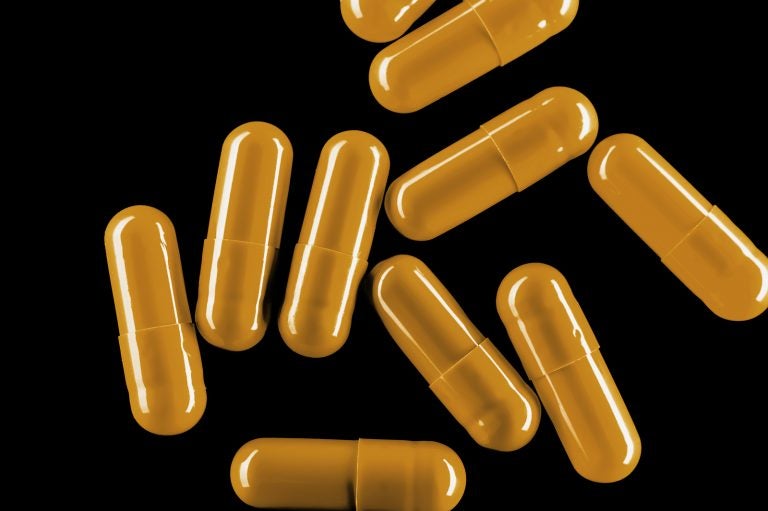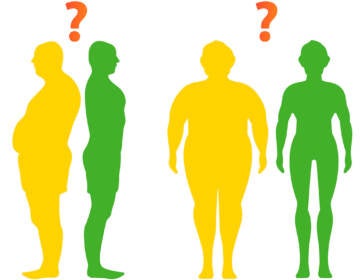Could fecal transplants help treat mental illness?
How emerging microbiome science is pointing the way toward an innovative approach.
Listen 12:58
An artist's rendering of fecal transplant capsules. Fecal transplants use donor stool to rehabilitate the recipient's microbiome. (Image courtesy of Mbruxelle)
This story is from The Pulse, a weekly health and science podcast.
Subscribe on Apple Podcasts, Stitcher or wherever you get your podcasts.
Gut feelings are more than just a figure of speech — in recent years, we’ve discovered that there really is a connection between our minds and our stomachs. It’s called the gut-brain axis, and new research shows it can have a major effect on mental health.
In fact, some scientists — and even lay people — are exploring ways to treat mental illness through our stomachs.
Among them is Kerwin Juarez Ojeda, a 45-year-old industrial engineer who lives in Peru.
Ojeda struggled for years with depression and anxiety, before finally being diagnosed with bipolar disorder.
Ojeda tried a string of medications, with varying success. And then, two years ago, the medications stopped working, and Ojeda sank into a deep depression.
“I was a zombie in my house,” he said. “Crying, feeling trapped. I had so many suicidal thoughts, as well as many obsessive thoughts.”
The illness affected all areas of Ojeda’s life — he couldn’t work, and says it was also hard on his wife and five children.
“Basically, they only ever saw me while I was depressed,” he said. “They would help me, take me out for walks, encourage me.”
It was while Ojeda was in the depths of his depression that he came across a website describing a radical new treatment for bipolar disorder: fecal transplant.
“If someone tells you you’ll get better if you eat a lizard, you eat it,” he said. “It wasn’t the solution you were looking for, but it was necessary.”
The digestive system: a factory, of sorts
Fecal transplants — which are still relatively new — began gaining traction a few years back as a treatment for the difficult and sometimes deadly gut infection Clostridium difficile, or C. diff. Traditionally, C. diff is treated using antibiotics, but antibiotics can kill off the good bacteria in our guts along with the bad.
And that’s a problem, because our digestive systems depend on our having healthy microbiomes, or bacterial ecosystems.
You can think of it like a food-processing factory — all the different microbiota are the workers, each with its own job. But when those good workers are wiped out, the machinery might stop working. Even worse, there’s no one to defend the factory when you get bad actors, like C. diff, trying to take over. What fecal transplants do is replenish the workforce.
Here’s how it works: The donor is screened for diseases and infectious pathogens. Once cleared, the stool is donated, then mixed with saline for easier delivery. And then it’s transferred to the recipient — usually, using colonoscopy tools or an enema or, more rarely, oral capsules.
Searching for relief
Fecal transplants are typically done at a hospital, but that wasn’t an option for Ojeda. That’s because fecal transplants aren’t yet medically available to treat mental illness.
Despite that, a few pioneers have forged ahead by performing the procedure at home.
Ojeda connected with one of them online — an Australian woman who said she’d successfully treated her bipolar disorder using DIY fecal transplants.
Her psychiatrist, Dr. Russell Hinton, is currently working to publish a case study about her experience. He says she suffered for years without success, until 2016, when Hinton told her about some new research he’d been reading about.
“I was talking about gut microbiome and, you know, this idea that it can make mice fat, thin, happy, sad,” Hinton said. “And I thought, that’s incredible. Just thinking about that, and just thinking if you could do that for people — that’s almost science fiction.”
Hinton’s patient decided to try it, with Hinton offering supervision.
“You know, while I was excited and interested, I certainly didn’t want to — I guess I wasn’t promoting it,” he said. “Because that the evidence just wasn’t there. It certainly wasn’t at that time.”
The beginning was a little rocky, but after a few months, her depression started to lift. Hinton remembers the turning point as coming about half-a-year later.
“I’ve noted it down here. She said, ‘I feel like a normal person’,” he said.
Ojeda had a similar experience. After several treatments using his wife’s stool, he began to notice gradual improvement.
“It took at least two months,” he said. “I was feeling much better; very, very, very changed. Because I was totally recovered by three months in, to the point that I was able to go back to work.”
Ojeda safeguarded his gains by sticking to a microbiome-friendly diet, which included vegetables, high fiber, and probiotics. But after returning to work, he fell off the wagon.
“I put aside the diet and began to eat rice, carbohydrates, sugars,” he said. “And after two months, I had horrible anxiety attacks.”
Again, Ojeda had to stop working to focus on his health. These days, he’s more careful, and says he takes a holistic view to maintaining his mental health — one that goes beyond fecal transplants.
“It’s not a panacea — we shouldn’t throw out medication,” he said. “Someone who’s been sick for 20 years doesn’t become healed overnight. But thanks to this, I’m much better.”
Subscribe to The Pulse
Emerging research
Ojeda’s only one case, but the idea is promising enough that researchers around the world are preparing to launch clinical trials doing exactly what she did — using fecal transplants to treat serious mental illness.
Among them is Felice Jacka, a professor and director of the Food and Mood Centre at Deacon University in Australia.
Jacka has made a name for herself as a pioneer in the world of nutritional psychiatry, releasing a study in 2010 that demonstrated a link between diet and high-prevalence mental disorders such as depression.
Today, Jacka is among a growing group of researchers looking at how gut microbes affect our brains — a process that she says begins when the microbes break down our food, releasing metabolites that go on to form neurotransmitters.
“We know that the bacteria produce vast amounts of neurotransmitters,” she said. “In fact, something like 95% of serotonin is produced in the gut. However, we don’t know what the relevance of that is to the central nervous system and the brain, because we think that the brain is protected by the blood-brain barrier. But we do know that the bacteria in the gut play a big role in how much serotonin is in the brain.”
Another way microbes might affect our mood is through immune systems. According to Jacka, as much as 70% of our immune function is a product of what happens in the gut.
“The immune system is very closely involved in mental health,” she said. “Inflammation, which is this chronic, low-grade immune activation, which is extremely common, is a risk factor for clinical depression, as well as being a consequence in many cases of depression.”
What the studies show
Many of these discoveries have been borne out in recent studies showing how the brain and the gut microbiome affect each other. Studies have drawn connections between the microbiome and conditions ranging from depression to fibromyalgia to autism.
One startling new study even found that transferring gut microbes from people with schizophrenia into germ-free mice can cause schizophrenia-like symptoms. (Microbes from healthy controls had no such effect in the mice.) The same study found what could be the mechanism for that change: dysfunction of the affected mice’s glutamate system, which is thought to be implicated in schizophrenia.
“So it shows that it could be a cause, but at the very least a strong contributing factor, that’s coming from the microbes that the person carries with them,” Julio Licinio, the study’s co-author, said.
Licinio added that the significance to this finding is that changing the microbes could have a therapeutic effect on subjects’ behavior, offering a new avenue for treatment.
The study also offers one more piece of evidence that microbiomes don’t just reflect mental illness, but could actually be causing mental illness.
“There is a possibility that there are some microbes that are very specific to mental illness,” Licinio said. “It would be a huge finding if that’s confirmed.”
Licinio added that this hasn’t been proven yet, but evidence so far points to the idea that there are at least some microbes that are specific to people with mental illness.
“So we are still being a little cautious because we don’t want to, you know, say, ‘Oh, this is the biggest breakthrough,’ and it’s not proven yet. But it seems to be the case that there are at least some microbes that are very specific to people with mental illness.”
Tracing the original cause
What could be causing some microbiomes to be unhealthier than others?
Gastroenterologist and neuroscientist Emeran Mayer says the recent rise in illnesses like autoimmune diseases or inflammatory bowel disease have led some researchers to point the finger at diet.
“Our lifestyles, our nutrition, have changed dramatically over the last 60 years, which has had an effect on the diversity of our gut microbiome,” he said. “So it’s estimated that [there’s been an] approximately 40% loss of diversity since World War II.”
Australian psychiatrist Russell Hinton says his patient has a different guess for the origin of her bipolar disorder. She recalls first becoming sick after undergoing 10 courses of antibiotics over a two-year period to treat tonsillitis when she was a teenager.
Though we can’t know if that played a role, a large-scale study from earlier this year found that childhood infections leading to hospitalization — and especially antibiotic use — were associated with an increased risk of mental disorders later in life.
Hinton says the experience has led him to focus a lot more on his patients’ diets — these days, he’s more likely to warn against carbs, processed foods, and sugar, and to extol the virtues of veggies and high-fiber foods.
As for fecal transplants, he’s not recommending them yet. But he hopes they might be an option soon.
“I think the push should be for this stuff to go into randomized controlled trials as quickly as possible,” Hinton said. “I guess I’ve seen enough now to think that that needs to happen.”
WHYY is your source for fact-based, in-depth journalism and information. As a nonprofit organization, we rely on financial support from readers like you. Please give today.







